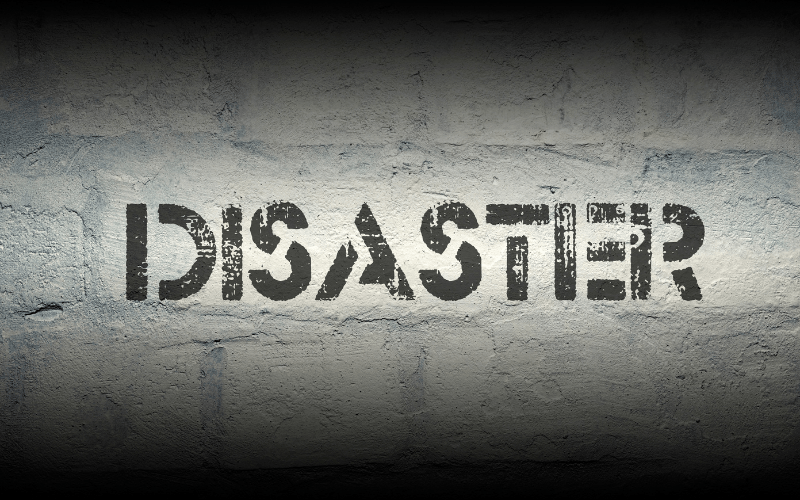November is a time to recognize the military community during Veterans Day in the U.S. We wanted to learn more about something many in the military community deal with: moral injury.
EMDR Therapy and Moral Injury
Guest Blog Post by Camille Zeiter, LICSW
Tell us a little about yourself and your experience working with the military community.
 I am a clinical social worker who has worked with veterans and active-duty service members for the U.S. military for the past 15 years. I currently work for an intensive outpatient program with active–duty service members diagnosed with PTSD and provide evidence-based trauma treatment for them including CPT and EMDR. This past year, I have been combining a group-based EMDR protocol entitled GTEP with individual EMDR in an intensive outpatient program. I am an EMDR Institute Military Trainer and have been on the EMDR Institute Military Training Team since 2012. I provide EMDR Training and Consultation to Department of Defense behavioral health providers.
I am a clinical social worker who has worked with veterans and active-duty service members for the U.S. military for the past 15 years. I currently work for an intensive outpatient program with active–duty service members diagnosed with PTSD and provide evidence-based trauma treatment for them including CPT and EMDR. This past year, I have been combining a group-based EMDR protocol entitled GTEP with individual EMDR in an intensive outpatient program. I am an EMDR Institute Military Trainer and have been on the EMDR Institute Military Training Team since 2012. I provide EMDR Training and Consultation to Department of Defense behavioral health providers.
Can you briefly help us understand a little more about the term ‘moral injury?’ What does it refer to and who might be affected by this in a general sense?
Moral injury was defined by Litz and Nash (2009, p. 4) as the following: “an act of transgression that creates dissonance and conflict because it violates assumptions and beliefs about right and wrong and personal goodness. How this dissonance or conflict is reconciled is one of the key determinants of injury.” The authors state that if individuals are unable to resolve the event within their self and relational schemas, they experience guilt, shame, anxiety, and avoidance. This article by Litz and Nash was a seminal paper on moral injury which to date has been referred to as a foundational definition in this evolving condition.
How can EMDR therapy help treat moral injury specifically in the military community? What successes have you seen?
EMDR therapy helps treat moral injury specific to the military community on a number of levels. As E.C. Hurley (2021, p. 183) described it so eloquently, “I conceptualize three levels of clinical complexity presented by clients suffering with moral injury: (a) moral wounds that EMDR Therapy reprocesses spontaneously with associated disturbing memories; (b) moral wounds with blocking beliefs associated with the wound (treated with cognitive interweaves); and (c) more severe complexity which often includes complex PTSD…”.
I have found this to be true as a clinician providing EMDR with active-duty service members and veterans. I have treated service members and veterans with moral injury by utilizing EMDR since I was first trained in EMDR in 2010. One of the first active-duty service members I treated believed that he was a monster prior to treatment because of the things that he had to witness and do in war to survive. As I was working with him through memories of three deployments involving mortar attacks, IED explosions, and many deaths in battle, he was able to conclude throughout EMDR treatment that he believed he did the best he could within the limits of the conditions. Toward the latter end of treatment, he said he felt better as a man than before he joined the service. At the time that I worked with this service member, I had recently come out of EMDR Basic Training, so I was not very skilled with EMDR. However, EMDR therapy still treated his moral injury.
For the past 15 years that I have been working with service members and helping them deal with moral injuries from combat, sexual assault, racial trauma, and childhood horrors, EMDR therapy has been successful. I am not unique. I have heard this same success from EMDR colleagues and EMDR consultees with their clients. I have even witnessed EMDR treat moral injury with active-duty participants of EMDR Basic Trainings during practicums when they have been the client.
Of course, blocking beliefs can make moral injury more challenging but with the right cognitive interweaves, moral injury can sometimes be treated within a session or two on that memory. Specific military cognitive interweaves can be instrumental in treating the moral injury:
- “What were your orders?”
- “What would your battle buddy say to you now?”
- “Were you in charge of the war?”
- “What would have happened if you hadn’t followed orders? Could you have died?”
- “What would he/she (the one who died instead of your client) say to you now about your guilt over his/her death?”
How might complex PTSD affect EMDR therapy with moral injury?
When it comes to complex PTSD, it can be more complex to treat moral injury. Sometimes childhood feeder memories that underlie the moral injury such as familial abuse or racial trauma get in the way. These memories can be addressed as first targets in EMDR treatment, addressed prior to the adult moral injury, or abruptly treated as they come up later in EMDR reprocessing. For example, in working with a service member who served as a tanker in combat in Iraq, he was trying to deal with the death of his best friend in battle during an EMDR session. During the reprocessing of this memory, a childhood memory of his father’s suicide came up. Both entailed moral injury. After we moved to reprocessing the feeder memory of his father’s suicide, he was then able to reprocess the death of his best friend, and the moral injury was treated in both instances and generalized across that entire Iraq deployment.
Of course, sometimes moral injury is more complicated. When unprocessed clusters of military trauma exist in the present dripping with moral injuries complicated by years of childhood trauma comorbid with other things such as depression, dissociation, and/or racial trauma, the client’s moral injury can be difficult to treat. In addition, when working with a client trying to grapple with the injustices of war and the dissonance of why they thought they were there and why they were actually there, treating moral injury is always a challenge.
I have been working in intensive outpatient group treatment programs for the last six years in addition to providing individual EMDR treatment to service members. Through this experience, I believe group treatment integrated with individual EMDR treatment is key to addressing complicated moral injury. I have seen success with EMDR group therapy integrated with individual EMDR as well as CBT group therapy integrated with individual EMDR in treating moral injury. But as Bonson articulates, “At present, there is no manualised, validated treatment for MI (moral injury), and research with both clinicians and patients highlights the need for this (Bonson et al, 2023, p. 2).”
Are there cautionary measures you would like to mention regarding the use of EMDR therapy and moral injury?
I would recommend making sure that clients are stable prior to treating a client with EMDR who has a moral injury. In addition, if the provider has no experience with moral injury, consider seeking EMDR consultation specifically for this. Just a few EMDR consultations by an experienced EMDR consultant who treats moral injury can catapult you into more efficient EMDR to treat this condition.
What multicultural considerations might EMDR therapists need to keep in mind regarding EMDR therapy and moral injury?
An entire article can be written on this. Broaching is extremely important in working with ethnically diverse clients with moral injury. In addition, memories related to racial transgression and racial trauma are memories of moral injury. Consider targeting racial trauma first and then move into targeting combat memories.
Do you have any favorite free EMDR-related resource that you would suggest to EMDR therapists interested in learning more about using EMDR with moral injury?
- Joshua Mantz TEDx Talk Overcoming Moral Injuries: https://youtu.be/ORBf73HiJns?si=WtIbkC-0MvwF4ZBZ
“The only force of nature powerful enough to overcome the moral injuries that are inherent to traumatic experiences is a strong sense of community and human connection.” Mantz, 2016
Anything else you’d like to add?
If you have any questions about this blog, feel free to email me at camillezeiter@gmail.com.
Camille Zeiter, LICSW, is a clinical social worker who has worked with veterans and active-duty service members for the U.S. military for the past 15 years. She currently works for an intensive outpatient program with active–duty service members diagnosed with PTSD and provides evidence-based trauma treatment for them including CPT and EMDR. This past year, she has been combining a group based EMDR protocol entitled GTEP with individual EMDR in an intensive outpatient program. Zeiter is an EMDR Institute Military Trainer and has been on the EMDR Institute Military Training Team since 2012. She continues to provide EMDR Trainings and Consultation to Department of Defense behavioral health providers.
References
Barr, N., Atuel, H., Saba, S., & Castro, C. A. (2022). Toward a dual process model of moral injury and traumatic illness. Frontiers in Psychiatry, 13, 883338. Open access: https://doi.org/10.3389/fpsyt.2022.883338
Bonson, A., Murphy, D., Aldridge, V., Greenberg, N., & Williamson, V. (2023). Veterans’ experiences of moral injury, treatment and recommendations for future support. BMJ Military Health. https://doi.org/10.1136/military-2022-002332
Farrell, D., Moran, J., Zat, Z., Miller, P. W., Knibbs, L., Papanikolopoulos, P., Prattos, T., McGowan, I., McLaughlin, D., Barron, I., Matthes, C., & Kiernan, M. D. (2023). Group early intervention eye movement desensitization and reprocessing therapy as a video-conference psychotherapy with frontline/emergency workers in response to the COVID-19 pandemic in the treatment of post-traumatic stress disorder and moral injury—An RCT study. Frontiers in Psychology, 14, 1129912. Open access: https://doi.org/10.3389/fpsyg.2023.1129912
Hurley, E. C. (2020). A clinician’s guide for treating active military and veteran populations with EMDR therapy. New York, NY: Springer Publishing Company.
Koenig, H. G., & Al Zaben, F. (2021). Moral injury: An increasingly recognized and widespread syndrome. Journal of Religion and Health, 60(5), 2989-3011. Open access: https://doi.org/10.1007/s10943-021-01328-0
Litz, B. T., & Kerig, P. K. (2019). Introduction to the special issue on moral injury: Conceptual challenges, methodological issues, and clinical applications. Journal of Traumatic Stress, 32(3), 341-349. https://doi.org/10.1002/jts.22405
Litz, B. T., Stein, N., Delaney, E., Lebowitz, L., Nash, W. P., Silva, C., & Maguen, S. (2009). Moral injury and moral repair in war veterans: A preliminary model and intervention strategy. Clinical Psychology Review, 29(8), 695-706. https://doi.org/10.1016/j.cpr.2009.07.003
Mantz, J. (2016, February). Overcoming moral injuries [Video]. TED. https://www.youtube.com/watch?v=ORBf73HiJns
Ter Heide, F. J. J., & Olff, M. (2023). Widening the scope: Defining and treating moral injury in diverse populations. European Journal of Psychotraumatology, 14(2), 2196899. Open access: https://doi.org/10.1080/20008066.2023.2196899
Ter Heide, F. J. J., de Goede, M. L., van Dam, S., & Ekkers, S. (2022). Development of an online supportive treatment module for moral injury in military veterans and police officers. Frontiers in Psychiatry, 13, 890858. Open access: https://doi.org/10.3389/fpsyt.2022.890858
Wood, D. (2016). What have we done: The moral injury of our longest wars. Hachette. U.K.
Back to Focal Point Blog Homepage
Additional Resources
If you are a therapist interested in the EMDR training:
- Learn more about EMDR therapy at the EMDRIA Library
- Learn more about EMDR Training
- Search for an EMDR Training Provider
- Check out our EMDR Training FAQ
If you are EMDR trained:
- Check out EMDRIA’s Let’s Talk EMDR Podcast
- Check out the EMDRIA Focal Point Blog
- Learn more about EMDRIA membership
- Search for EMDR Continuing Education opportunities
If you are an EMDRIA Member:
Date
November 11, 2024
Contributor(s)
Camille Zeiter
Topics
Moral Injury
Client Population
Military/Veterans





